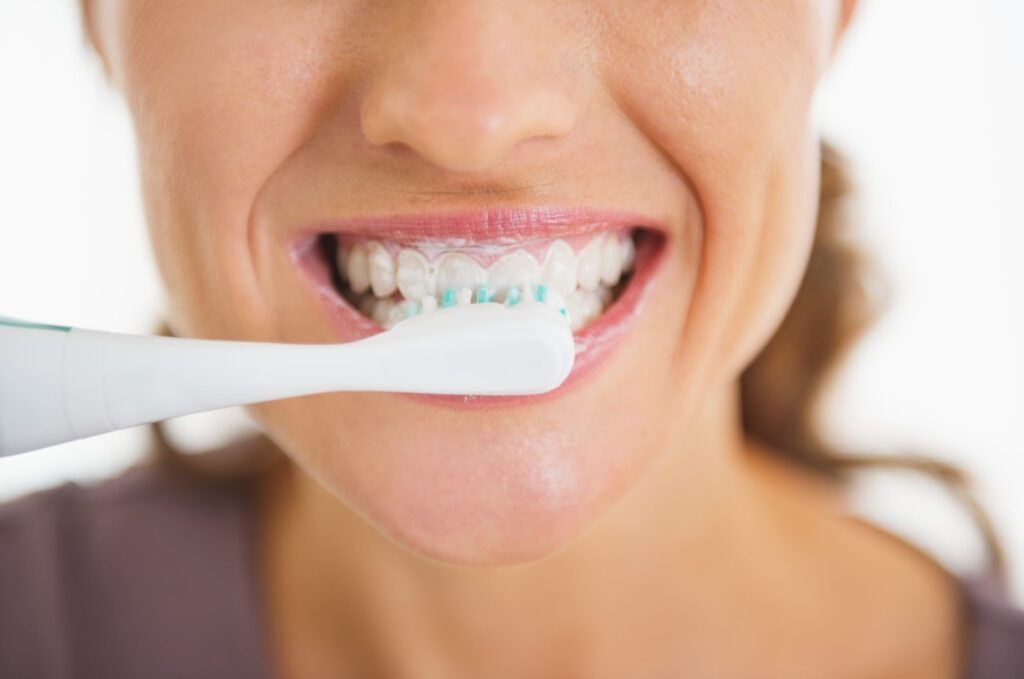We all know that brushing our teeth is important for maintaining good oral hygiene. But did you know that there are a few other things you can do to keep your mouth clean and healthy? Here are a few tips:
1. Floss regularly. This helps remove plaque and bacteria from between your teeth and gums.
2. Brush your tongue. Your tongue can harbor a lot of bacteria, so be sure to give it a good scrubbing!
3. Rinse with mouthwash. This can help kill any remaining bacteria and freshen your breath.
4. Visit your dentist regularly. They can help spot any problems early on and give you the professional cleaning you need to keep your smile shining bright!
The Importance of Oral Hygiene
It is important to practice good oral hygiene because it helps prevent gum disease and tooth decay. Gum disease is an infection of the gums that can progress to the bones that support the teeth. Tooth decay is the breakdown of tooth enamel caused by plaque, a sticky film of bacteria that forms on teeth.
Good oral hygiene includes:
-Brushing your teeth at least twice a day with a toothbrush and toothpaste
-Flossing your teeth at least once a day
-Rinsing with mouthwash
-Eating a healthy diet and avoiding sugary snacks and drinks
– Visiting your dentist regularly for professional cleanings and checkups

The Benefits of Good Oral Hygiene
Good oral hygiene habits are important for maintaining healthy teeth and gums, and preventing bad breath. A proper oral hygiene routine consists of brushing twice a day, flossing daily, rinsing with mouthwash, and visiting your dentist regularly.
Brushing your teeth removes plaque, a sticky film of bacteria that forms on your teeth. Plaque is the leading cause of tooth decay and gum disease. If plaque is not removed, it can harden into tartar, which is more difficult to remove.
Flossing helps remove plaque and food particles from between your teeth, where your toothbrush cannot reach. Rinse with mouthwash to remove plaque and bacteria that brushing and flossing may have missed.
See your dentist at least once a year for a professional cleaning and checkup. Your dentist can detect early signs of tooth decay and gum disease, and provide treatment to prevent these conditions from becoming more serious.
Good oral hygiene habits not only help keep your mouth healthy, but can also improve your overall health. Studies have linked poor oral health to various medical conditions, such as heart disease, stroke, diabetes, and respiratory illness.
The Consequences of Poor Oral Hygiene
If you don’t take care of your teeth, you’re not just risking cavities and gum disease. Poor oral hygiene can also lead to bad breath, tooth loss, and other problems.
Bacteria that cause gum disease can enter your bloodstream and increase your risk of heart disease, stroke, and other health problems.
Tooth loss can make it hard to chew your food and speak clearly. It can also change the shape of your face and make you look older.
You may not realize it, but your teeth can also affect your self-esteem. If you’re not happy with your smile, you may be less likely to socialize and more likely to withdraw from activities you enjoy.
The Best Time to Brush Your Teeth
Most people brush their teeth in the morning and at night, but is that really enough? The American Dental Association (ADA) recommends brushing your teeth twice a day with fluoride toothpaste to remove plaque, a sticky film of bacteria that forms on your teeth and gums. Plaque that isn’t removed can harden into tartar, which can contribute to gum disease.
The ADA also recommends brushing your tongue to remove bacteria and freshen your breath. You can use a tongue scraper or your toothbrush to do this.
There are other things you can do to keep your mouth healthy, including:
-Flossing daily to remove plaque and food particles from between your teeth
-Eating a healthy diet
-Limiting sugary drinks
-Not smoking
-Visiting your dentist regularly for professional cleanings and checkups
The Right Way to Brush Your Teeth
Good oral hygiene starts with the right way to brush your teeth. Here are some tips to help you get the most out of your toothbrush:
-Choose a toothbrush with soft bristles. Hard bristles can damage your tooth enamel and gums.
-Replace your toothbrush every three to four months, or sooner if the bristles start to fray.
– position your toothbrush at a 45-degree angle to your gum line and use gentle circular motions.
-Use moderate pressure to avoid damaging your gums.
-Focus on one section of your mouth at a time and be sure to brush on the inside surfaces of your teeth.
-Spit out the toothpaste after brushing, but don’t rinse your mouth with water. Rinsing washes away the protective fluoride from toothpaste.
The Right Way to Floss Your Teeth
Flossing is an important part of oral hygiene, and it’s important to do it the right way in order to be effective. The American Dental Association (ADA) recommends using 18 inches of floss, winding it around your middle fingers, and holding it tight with your thumbs and index fingers. You should use a gentle back-and-forth motion to guide the floss between each tooth.
Be careful not to snap the floss into your gums, as this can damage them. When you get to the gum line, curve the floss into a C shape and slide it up and down against the side of each tooth. Be sure to floss on both sides of each tooth, as well as under the gum line.
When you’re finished, rinse your mouth with water or mouthwash to remove any debris. Flossing once a day is ideal, but if you can’t do that, try to floss at least three times a week.
The Right Way to Use Mouthwash
Mouthwash can be a helpful addition to your oral hygiene routine, but it’s important to use it properly in order to maximize its benefits. The National Institutes of Health recommend using mouthwash at least once a day, after you brush and floss your teeth.
When you use mouthwash, follow the directions on the bottle. Most types of mouthwash should be swished around in your mouth for 30 seconds before you spit it out. Some mouthwashes may need to be held in your mouth for a longer period of time, so be sure to read the directions carefully.
It’s also important to avoid eating or drinking anything for at least 30 minutes after you use mouthwash. This gives the mouthwash time to work its way into your oral cavity and kill any bacteria that may be present.
The Best Foods for Oral Health
When it comes to oral health, we’re often told to avoid sugary snacks and drinks. But did you know that there are actually certain foods that can help keep your teeth and gums healthy? Here are some of the best foods for oral health:
Milk: Milk is a great source of calcium, which is essential for strong teeth.
Cheese: Like milk, cheese is also a good source of calcium. In addition, cheese has been shown to increase saliva flow, which can help neutralize acids in the mouth and prevent tooth decay.
Yogurt: Yogurt contains probiotics, which are beneficial bacteria that help keep the mouth healthy by reducing plaque and gingivitis.
Leafy green vegetables: Leafy greens like spinach and kale are packed with vitamins and minerals like vitamin A, C, and folic acid, which can help keep gums healthy.
Almonds: Almonds are a good source of vitamin E, which can help protect gum tissue. In addition, they contain minerals like magnesium and zinc, which have been shown to reduce inflammation in the gums.
The Worst Foods for Oral Health
Sugar: Any type of sugar, whether it’s from candy, desserts, fruit juices, sports drinks or even honey, can contribute to cavities. Sugar causes plaque, which is a sticky film of bacteria, to form on your teeth. Plaque produces acids that attack tooth enamel, resulting in cavities.
Sticky and hard foods: Foods like caramel, toffee and chewing gum can get stuck on your teeth and are difficult to remove. These types of foods also put you at risk for cracked teeth.
Acidic foods and drinks: Acidic beverages like sodas, sports drinks, citrus fruits and tomatoes can contribute to enamel erosion. Enamel is the hard outer layer that protects your teeth against decay. When it’s eroded, your teeth are more vulnerable to cavities and other problems.
Coffee and tea: Both coffee and tea can stain your teeth. If you can’t give them up entirely, try using a straw to help limit the staining effect.
Tips for Maintaining Good Oral Hygiene
Good oral hygiene is important for people of all ages. It helps prevent tooth decay and gum disease, and can also help keep your teeth and gums healthy as you get older.
Here are some tips for maintaining good oral hygiene:
-Brush your teeth at least twice a day, and floss at least once a day.
-Use a toothbrush with soft bristles, and replace it every three to four months.
-Use a fluoride toothpaste.
-If you wear dentures, brush them every day and soak them in a denture cleanser overnight.
-See your dentist or dental hygienist regularly for professional cleanings and checkups.




